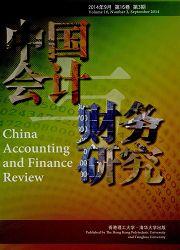Analyses of unintended consequences of IAS 12 on deferred income taxes
引用次数: 0
Abstract
PurposeAn intractable effect of revenue and expense recognition based on tax regulation and accounting rules is unresolved and may be manageable only by reducing the value of deferred taxes. Therefore, in this study, the authors examined the relationship between the International Accounting Standard 12 (IAS 12) and deferred income taxes associated with tax and accounting rules.Design/methodology/approachThe authors used a large sample of balanced data from 144 firms across 1992–2019. To mitigate the problem of superfluous results, the authors used the same number of firms and years for pre- and post-IAS 12 periods. The authors employed robust econometric estimations to establish the impact of IAS 12 on deferred tax.FindingsThe regression results show that deferred tax assets decreased significantly, whereas deferred tax liabilities increased significantly, in the post-IAS 12 period. These contrasting results imply that IAS 12 implementation has increased conservatism and prudence in financial reporting. However, the authors find that the increase in deferred tax assets post-IAS 12 is value destructive, suggesting that its implementation has unintended consequences. The results are robust to alternative measurements and econometric identification strategies.Originality/valueWhile prior studies have explored topics such as deferred tax measurement and the impact of income and expense recognition, the authors specifically analyzed how IAS 12 affects deferred taxes and their effect on the market valuation. The authors find that certain accounting standards may not be relevant to the capital market.国际会计准则第12号对递延所得税的意外后果分析
目的基于税收法规和会计规则的收入和费用确认的棘手影响尚未解决,只有通过降低递延税款的价值才能控制。因此,在本研究中,作者研究了《国际会计准则第12号》(IAS 12)与与税收和会计规则相关的递延所得税之间的关系。设计/方法论/方法作者使用了1992年至2019年144家公司的大量平衡数据样本。为了缓解多余结果的问题,作者在《国际会计准则》第12号之前和之后的时期使用了相同数量的公司和年份。作者采用稳健的计量经济学估计来确定《国际会计准则》第12号对递延所得税的影响。结果回归结果显示,在后国际会计准则第12号期间,递延所得税资产大幅减少,而递延所得税负债大幅增加。这些对比结果表明,国际会计准则第12号的实施提高了财务报告的稳健性和谨慎性。然而,作者发现,《国际会计准则第12号》后递延所得税资产的增加具有价值破坏性,这表明其实施会产生意想不到的后果。结果对于替代测量和计量经济学识别策略是稳健的。原创性/价值虽然先前的研究探讨了递延所得税计量以及收入和费用确认的影响等主题,但作者特别分析了《国际会计准则第12号》如何影响递延所得税及其对市场估值的影响。作者发现,某些会计准则可能与资本市场无关。
本文章由计算机程序翻译,如有差异,请以英文原文为准。
求助全文
约1分钟内获得全文
求助全文

 求助内容:
求助内容: 应助结果提醒方式:
应助结果提醒方式:


